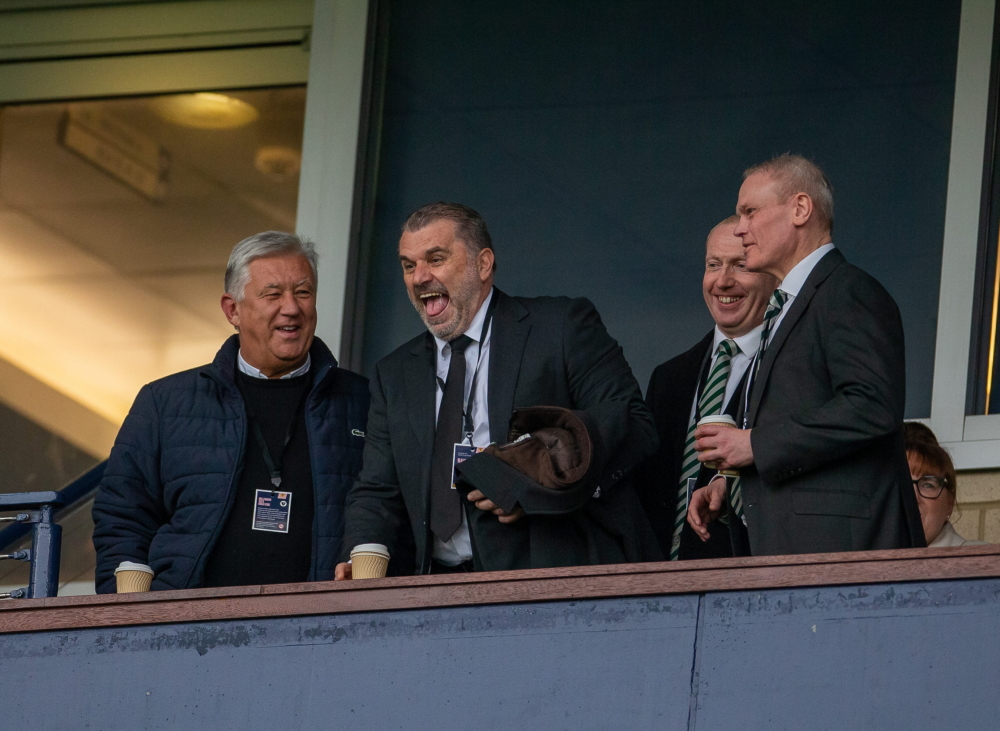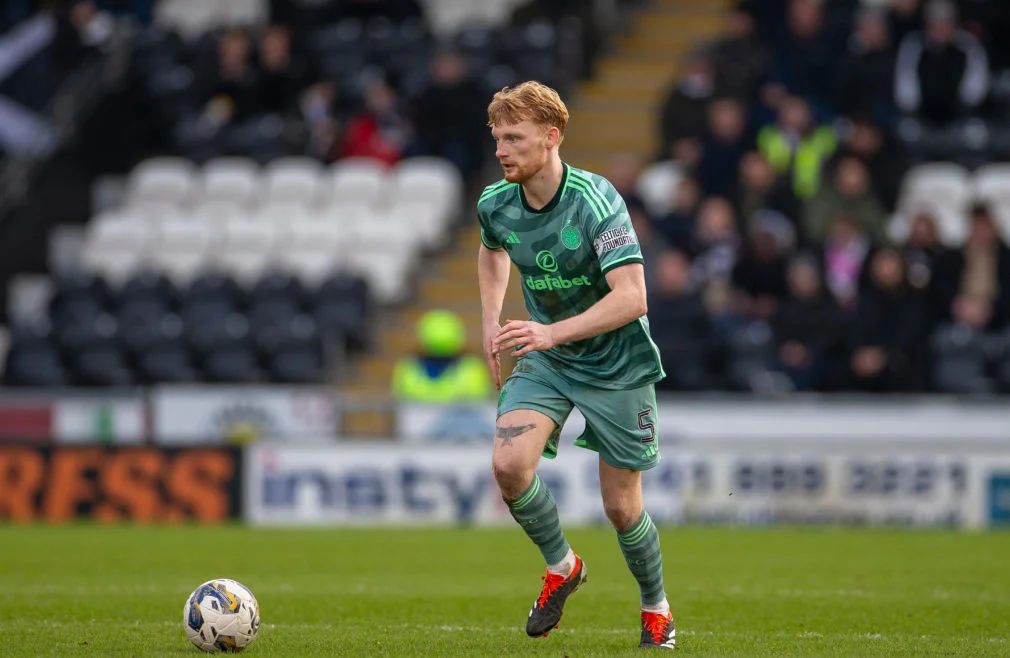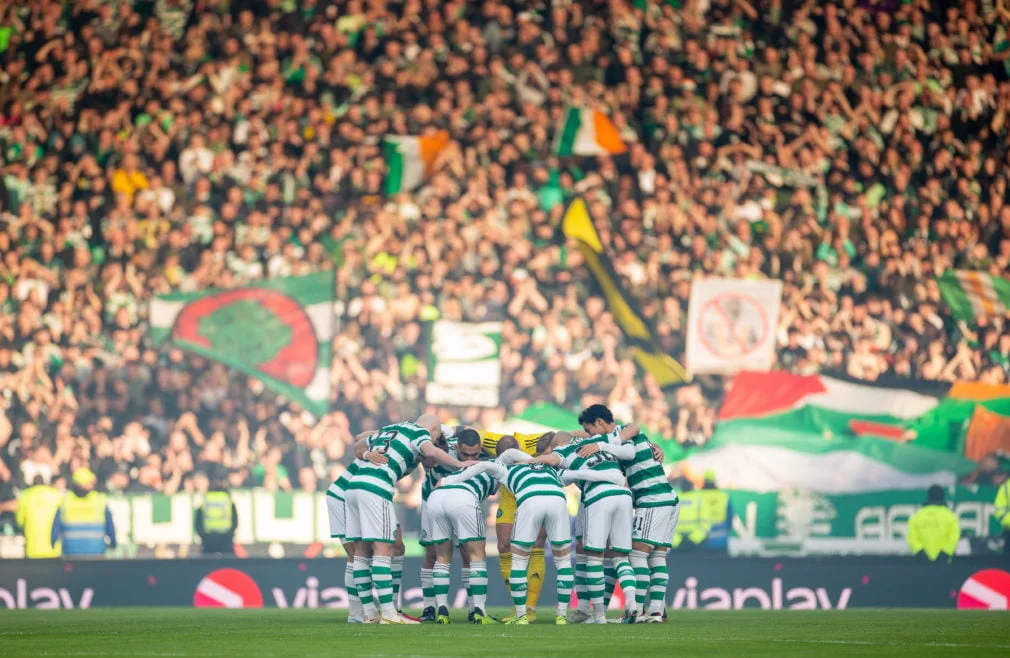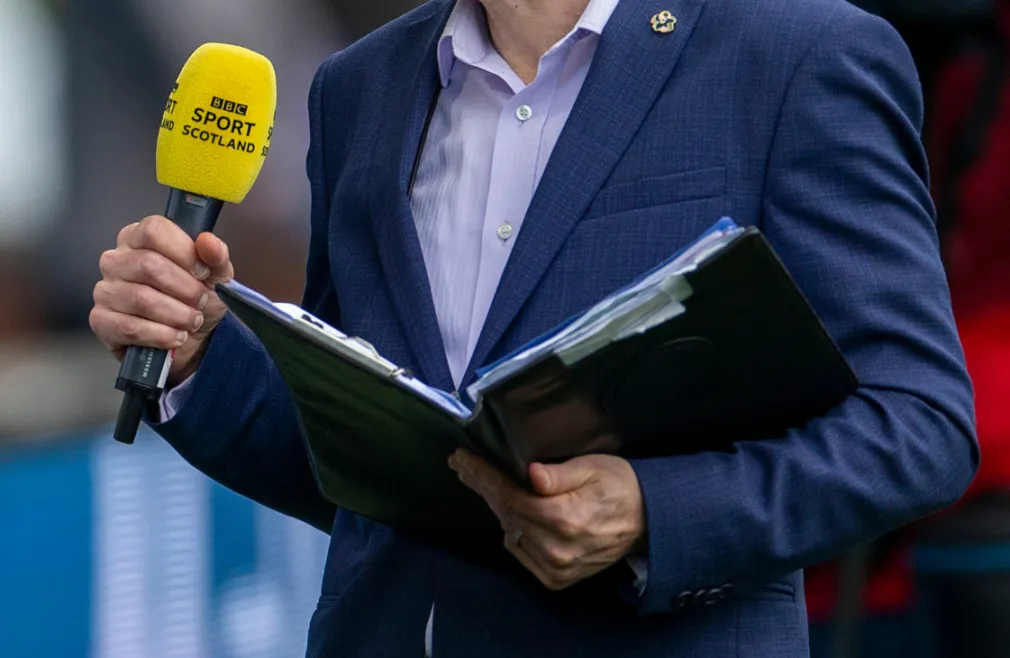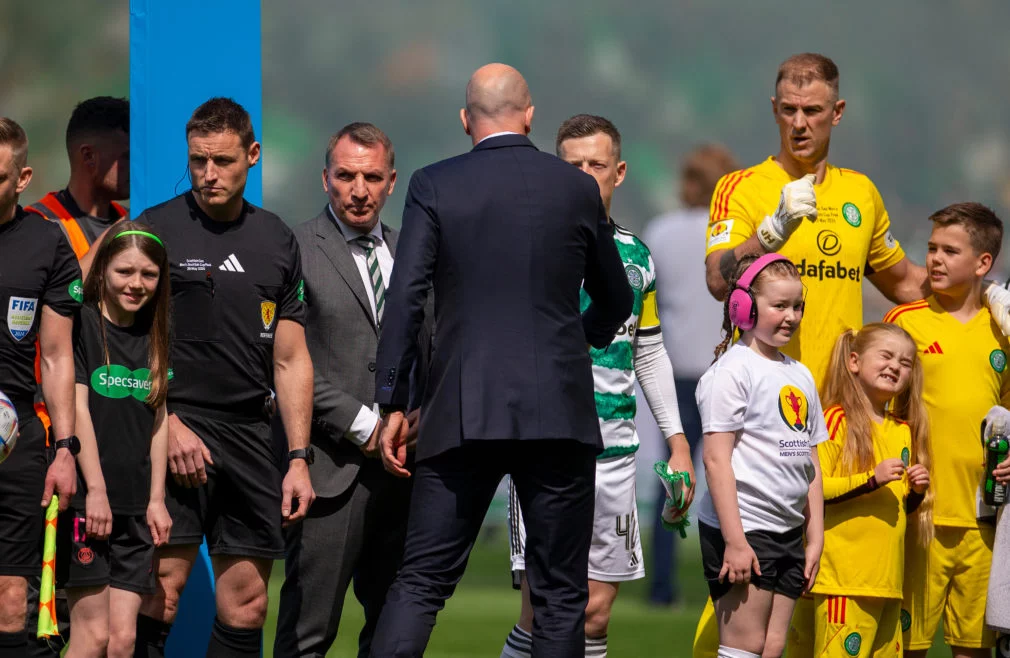Ultimately, I will coach and develop the players that I am provided, and of course I, have a part in that.
Brendan Rodgers gave an unexpectedly detailed insight into the recruitment process that he is now involved in.
Without breaking down the exact working of it it seems that a highly experienced manager has at best an influence equal to the Head of First Team Scouting and Recruitment- Mark Lawwell.
According to his Linkedin profile Lawwell was Head of CFG Scouting and Recruitment for nine years and nine months before taking on his Celtic role last July.
Ange Postecoglou and Rodgers have both been fulsome in their praise of the work done by Lawwell Jr but there was no suggestion that the Australian wanted to take Mark with him to Spurs.
Regardless of Lawwell’s title every signing over the last two seasons had the stamp of Postecoglou on it, good or bad. In his first season it was almost all success bar James McCarthy and Yuji Kobayashi.
From season two there remains question marks over Alexandro Bernabei, Sead Haksabanovic, Tomoki Iwata and Yuki Kobatashi, the others have been successes.
5 minutes
QUESTION: There’s been a lot of chat among the fans anyway about club signings and Brendan Rodgers signings. How many more players are you looking to get in and could you talk us through the recruitment process and how players are brought to you and whether you get a big say in “I want that guy” or “This is the man for me”?
BR: It’s pretty simple in terms of how it works. Ultimately, I will develop and coach the players that the club provide me, and the process of the club providing me with the players is we have a great network of scouts headed up by Mark (Lawwell), who, as
I’ve said before, has done a fantastic job within the model of the club and bringing the players in that fit in with the club, which allows the club to be sustainable and successful at the same time.
So, they have a pipeline of players there that all will fit in, but then it’s about picking the profile that fits us best, and of course, I play a part in that. But they do a lot of great work, they watch players over a number of months so that they have various players for each position.
So, whenever we do lose one – as you see with Gustaf – then there’s a replacement to come in. It’s not always straightforward – it always takes time – but like I say a lot of great work goes on and ultimately, I will coach and develop the players that I am provided, and of course I, have a part in that. The club is run very, very well, it’s very sustainable and that’s what’s given it that sustainability and success over a number of years and it’s my responsibility to adhere to that.
QUESTION: Does that differ much from the way things worked at Leicester?
BR: You can’t compare because the resources of the Premier League are different. I think in terms of Leicester it was a club where it was difficult for us in the final year but likewise, there the club would identify the types of players we would want like Wesley Fofana or Youri Tielemans. The club would identify the profile of the player and then do everything they could to get it. It was all done within a certain budget and there was a certain budget the club could never get to and most clubs are the same. At Celtic, we do not have that resource but it still means we can have good players and ones who we can develop and improve.
Clearly more the manager has an influence on signing, clearly Rodgers knew of this and agreed to it before coming back to Celtic on a three year contract.
There will be a couple of people that have a role on signings but it is the manager in the dug-out on matchday and explaining results, not the Head of First Team Scouting and Recruitment, who takes responsibility. Ultimately it all falls on the manager.
In recent years the signings of Marian Shved, Vakoun Bayo, Ismaila Soro, Patryk Klimala, Albian Ajeti and Vasilias Barkas have turned out to be disastrous.
Under Postecoglou that was turned around spectacularly, time with tell if the new recruitment model delivers the required results.


